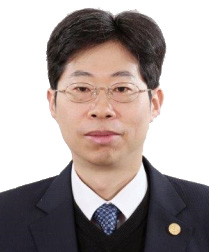Power generation and energy preservation have always been critical issues in Taiwan, and effective regulation has kept the evolution of renewable energy on the right track
Taiwan owns an environment with great advantages related to the development of energy industries. However, the isolated and limited land area, together with a great population density, also pose challenges for these industries. Taiwan faces rising environmental issues, and aims to balance its energy laws and policies among environmental protection, the public interest of a stable power supply, and the potential of the renewable energy market.

Senior partner at Formosa Transnational in Taipei
Tel: +88 62 2755 7366
Email: shuai-sheng.huang@taiwanlaw.com
The general energy policy of Taiwan is basically regulated in the Energy Administration Law and the authority of the Ministry of Economic Affairs, under which the Bureau of Energy is set up as a specialised department.
Apart from the administrative structure of the government, the industrial history is worth noting. Due to its geographical disadvantages, 98% of the energy in Taiwan is imported, especially fossil fuel. Since electricity cannot be transported transnationally, power generation and energy preservation have become critical issues.
Power supply development
Power generation has been handled by a state-owned enterprise, Taiwan Power Company (Taipower), since 1945, which was mainly generating electricity based on hydropower at the time. From the 1960s, along with industrialisation, the main power generation method turned to thermal power, assisted with hydro and nuclear power. As the needs of power supply and the global trend of liberalisation of power generation in the 1980s to 2000s increased, the Taiwan government began to issue permits for the construction and operation of private power plants other than Taipower, to accelerate and improve the efficiency of power generation.

Partner at Formosa Transnational
in Taipei
Tel: +886 2 2755 7366
Email: peng-kwang.chen@taiwanlaw.com
In recent decades, the government has initiated a policy for renewable energy in consideration of Taiwan’s geographical characteristics. With the Renewable Energy Development Act of 2009, the development of renewable energy industries has been accelerated, and is expected to reach 20% of the overall power supply. The most outstanding two forms of renewable energy are offshore wind and solar power.
Offshore wind power
Since regulations governing the reward for offshore wind farms came into force in 2012, their development of offshore wind farms has been vigorously promoted by the government. Not only has Taipower invested in its Changhua Demonstration offshore wind farm, but numerous experienced foreign corporations have been also investing in offshore wind farms in Taiwan, most of which are located in the Taiwan Strait, off the island’s west.
The development of offshore wind farms is one of the first co-operative strategies in the renewable energy policy, making the supervision over these investments relatively strict. Formosa Transnational is the communication liaison between foreign investors and the Ministry of Economic Affairs and its departments, including the Bureau of Energy. The firm assists foreign investors to be more familiar with relevant regulations and practice in Taiwan, as well as creating diverse ways of co-operation with other experienced investors.

Partner at Formosa Transnational
in Taipei
Tel: +886 2 2755 7366
Email: jane.wang@taiwanlaw.com
In most of the cases, the development and power purchase contracts are signed between the foreign investors and the Ministry of Economic Affairs for the goal of public utilisation of the power. There are also cases in which the power is expected to be solely offered to certain entities. For instance, on 8 July 2020, a leading technology company, Taiwan Semiconductor Manufacturing Company (TSMC), announced its entrance into power purchase agreements for the total amount of 1.2 gigawatts, most of which is purchased from Ørsted, a Danish offshore wind power investor with four wind farms located off the shore around Changhua, on the west coast of Taiwan.
Cases such as this reveal that the status quo of renewable energy transaction that relates to the public interest is no longer limited to the contracts with Taipower or the government. Instead, as co-operation with enterprises with clean energy has become the global trend, most of the main corporations in Taiwan are willing to purchase or invest in these developing industries for advancing their exportation as part of the green supply chain.
Solar power
The solar power industry, being one of the most mature renewable energy forms in the world, has grown significantly, at an average of 89.6% per annum in Taiwan, in the past few years. The Taiwan government expects the accumulated installed capacity of solar photovoltaics (PVs) will reach 25GW by 2025. With the Renewable Energy Development Act, the solar PVs in Taiwan have increased by four times from 2016 to 2019, and reached 3.9GW of accumulated installed capacity.
In respect of this aspect, Formosa Transnational plays a role as the communication liaison for investors. The whole investing process includes the review and approval procedure for foreign investments by the investment committee of the Ministry of Economic Affairs, the establishment of solar PVs under the supervision of the Bureau of Energy, and the negotiation regarding the site development, construction, management and operation, as well as all the contractual details including but not limited to the grid connection with Taipower’s system.
In 2020, although the growth of renewable energy industries in Taiwan was impacted by the covid-19 pandemic, under an effective epidemic prevention system the energy industries are recovering, and the solar power industry has received a magnificent amount of foreign investment. For example, the investment committee has approved two foreign investments in relation to renewable energy, with a total amount of more than NT$9.5 billion (US$339 million).
In this regard, the development and prospects of renewable energy industries in Taiwan are definitely worth looking forward to.
Energy conservation
In addition to the growth in environmentally friendly ways of power generation, energy conservation is another pillar of energy policy. The Greenhouse Gas Reduction and Management Act of 2015 stipulates that the government must establish an overall strategy and policy to counter climate change, including but not limited to the reduction of greenhouse gas emissions.
Despite the positive developments of renewable energy as indicated above, power generation in Taiwan relies on thermal power. One of the policies to comply with the Greenhouse Gas Reduction and Management Act is to promote energy conservation. In this regard, the Ministry of Economic Affairs issued its Energy White Paper, aiming to promote energy efficiency, including the establishment of minimum energy performance standards, an energy efficiency rating label and energy label, as well as authorising the Industrial Technology Research Institute to execute reviews and management under the policy.
In comparison to rapid diversification of the business model, the needs for different energy labels are increasing accordingly. This leads to the issues of whether the above-mentioned policy remains sufficient for energy conservation, and whether the interest of the relevant entities would be affected by the modification of the policy.
In this regard, Formosa Transnational has been assisting the Industrial Technology Research Institute to clarify relevant legal issues, and reviewing updated documents including those to be submitted to the World Trade Organisation. The effectiveness and efficiency of the legal system have been improved through this co-operation, and the legitimate rights of the relevant entities are secured.
In 2011, the Ministry of Economic Affairs introduced ISO 50001, the standard for energy administration systems, into Taiwan as CNS 50001. Under this standard, enterprises in Taiwan are expected to apply the energy administration system to monitor their energy consumption, and adjust their internal policies for reducing the costs, which will also ultimately result in energy conservation.
The Ministry of Economic Affairs has further established a support scheme for enterprises to apply the energy administration system, and promotion of the system has been productive. The manufacturing industries in Taiwan, which are especially in need of ample energy for operation, have been through industrial upgrades in this aspect and benefit from the global trends of a green supply chain.
The Taiwan government applies several energy administration policies to encourage the development of renewable power generation industries, and to support the enterprises to optimise their business model in an environmentally friendly way. Under the trends of a green supply chain and environmental protection, it is believed that Taiwan will be keeping its legal system and policies for energy on the right track, improving the industrial environment and infrastructure from time to time, and always being ready for investment in this energy market of great potential.

FORMOSA TRANSNATIONAL ATTORNEYS AT LAW
13/F, 136 Jen Ai Road,
Sec. 3, Taipei
Tel: +886 2 2755 7366
Fax: +886 2 2755 6486
Email: ftlaw@taiwanlaw.com
www.taiwanlaw.com































